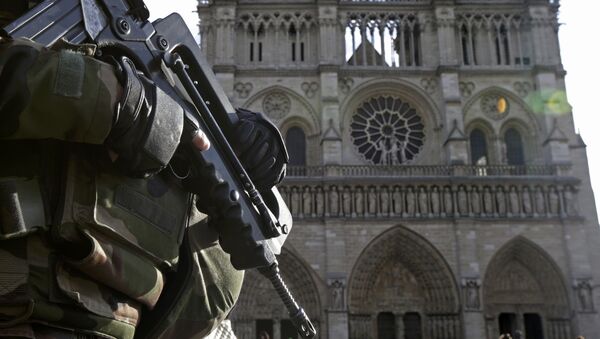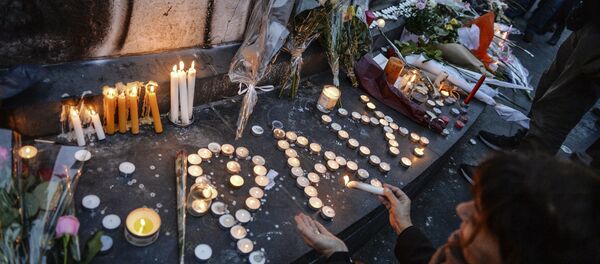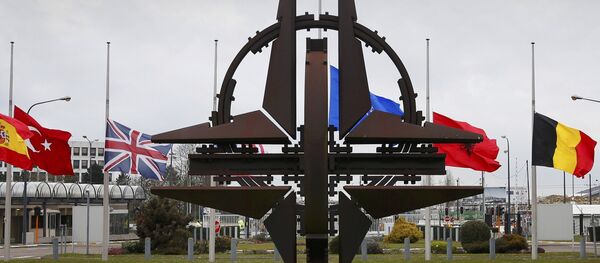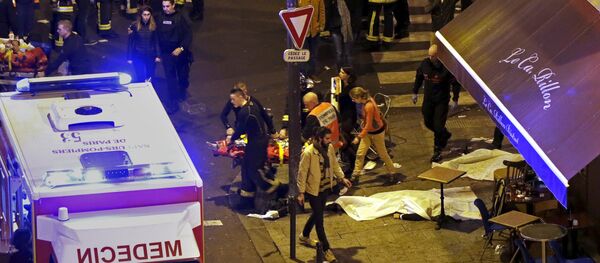Following the attacks, French authorities declared a state of emergency and tightened the security measures by introducing stricter border control and launching the so-called Operation Sentinel, when thousands of servicemen were deployed across the country in order to ensure protection of safety near the "sensible points," mostly in Paris.
Possible attacks
According to the experts, interviewed by Sputnik, a year after the November attacks, the threat posed by terrorists has not disappeared and France could become a target for the extremists' activities again.
Charles Rault, a former national security analyst and a founder of a Paris-based information analysis firm, suggests that the possibility of new attacks in France is high and both politicians and intelligence community share this point of view.
"Not only new terrorist attacks are possible but there’s a sentiment, this time shared by both intelligence agencies and political leaders, that there will be more [attacks]… Unfortunately, there will likely be attacks that they will fail to prevent," the expert said.
He added that terrorists could target France in order to give impetus to something like a civil war in the multinational French society.
"Terrorists will continue to put France at the top of their targets list because they deem it ripe for 'conflagration,' meaning that they seek to trigger what many would clumsily describe as a 'civil war.' The tensions are so high inside France that terrorists might try their best so that they can plunge France into a sectarian all-out bloody fight," Rault told Sputnik.
"I do think new attacks are likely. With the impending defeat in ISIS [Daesh] in Syria, their 'soldiers' will escape and may return home to many European countries, France included. It is highly likely some will wish to continue their struggle by attacking 'soft' civilian targets in these countries, following the Bataclan/Charlie Hebdo models," Swallow, who is also a senior lecturer at the School of Law, Criminal Justice and Computing of Canterbury Christ Church University, added.
He added that it was hard to say if the measures undertaken by Paris had made the country more secure, but they had definitely raised concerns about respect of human rights.
Former Senior Fellow at the Combating Terrorism Centre at the United States Military Academy at West Point Rohan Gunaratna said that terror attacks could repeat in France, as people, who had already been accused of terror activities could prepare new generation of radicals, because of the country's policy.
"As France did not believe in terrorist rehabilitation, the terrorists who were incarcerated both inside prison and after release radicalized a new generation of terrorists!" Gunaratna, who is the head of International Centre for Political Violence and Terrorism Research in Singapore, said.
Suitable solutions
Taking into consideration that the attacks against France could continue, the experts said about possible steps that could be undertaken to tackle the possible threat.
Rault considered that Paris should make two decisions to avoid new attacks and to enhance country's security and both of them had relations to protection of France's borders.
He added that the existing government measures were not very effective, as Paris moved resources from intelligence and counterterrorist agencies in order to ensure the country's security with the help of country's armed forces.
"Security measures taken by the French government seem insufficient if not inadequate. There is a large consensus within intelligence circles according to which using static military units to protect public places is of limited efficiency. Funds spent for Operation Sentinel could be of better use if they were spent for increased recruiting for intelligence services – especially seasoned Analysts – and for increased means for police forces across the country," Rault said.
The analyst's words were echoed by Gunaratna, who said that French intelligence services needed more resources.
"The intelligence coverage of threat groups overseas especially in conflict zones was not strong. Furthermore the strength of the French intelligence service grew at the slower pace at a time when IS [Daesh] strength grew at a rapid pace," he said.
In order to prevent new attacks, Swallow suggested that Paris should reconsider the principles of secularity (laicite in French) that hinder collection of the information about religious minorities and further analysis of the collected facts.
"On the assumption that the recent attacks are more 'political' than 'religious' (expressing anger at the perceived lack of opportunity of many young French people for ethnic minority backgrounds), France would need to reconsider its policy of 'laicite'… France cannot take steps to redress any imbalances or address what many people from such communities may consider as racism. This policy, which is deeply embedded in France's constitution, really needs to be challenged," the expert said.
He added that such revision could help Paris to understand such issues as the number of Muslims in the country and the number of police officers with ethnic minority background.
Organized terrorist cells, ‘lone wolves'
"Lone wolves undermine the State’s authority because it proves State authorities are quite powerless when it comes to prevent them from attacking. As for organized cells, they are more deadly at a specific point in time," the expert said.
He added that it was easier to tackle the groups, because counterterrorism units have bigger chances to spot them, but at the same time they could bring much more harm.
Rault's words were echoed by Swallow, who said that "both pose a threat," adding that the fact that it was more difficult to identify lone-wolf terrorists could be balanced by the potential harm of terrorist cells.
At the same time, Gunaratna said that despite a "very real threat" posed by both these categories, "the threat posed by organized groups is far greater."







